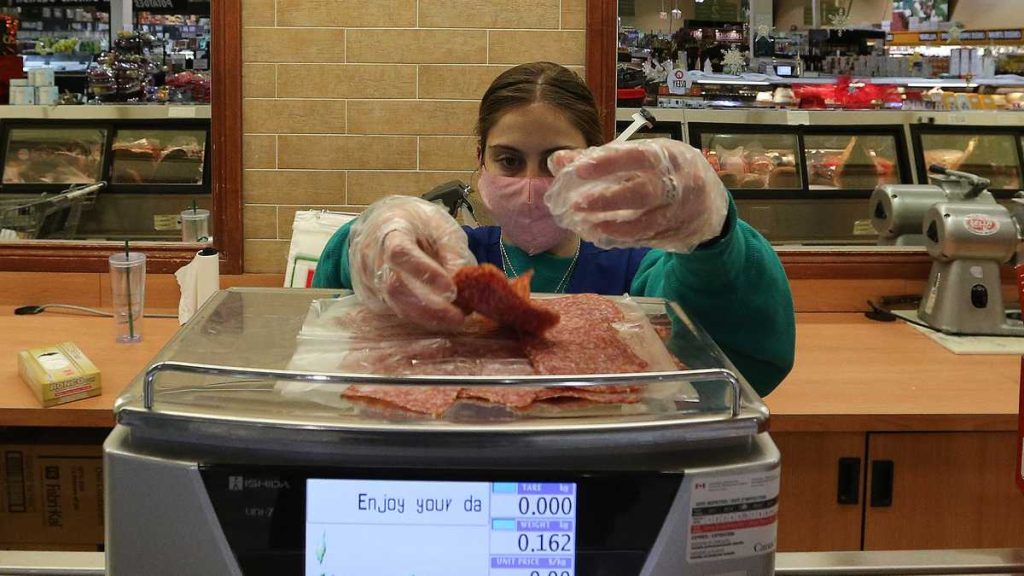The Centers for Disease Control and Prevention (CDC) on Friday warned of a multistate outbreak of deadly Listeria bacteria linked to deli meat. In an investigation notice, the center said two people have died and at least 28 have been hospitalized. But the CDC said the true number of cases may be higher than reported because some people may have mild symptoms and not have been tested for Listeria. There is also a lag between when cases are reported and when scientists link them to ongoing investigations. Seven cases have been reported in New York, six in Maryland, two each in Georgia, Massachusetts, Missouri, New Jersey, and Virginia, and one each in Illinois, Minnesota, North Carolina, Pennsylvania, and Wisconsin. The deaths were reported in Illinois and New Jersey. Of the 18 people who state and local public health experts were able to interview, 16 reported eating sliced meat from a deli in the month before they became ill. No one has reported getting sick after eating packaged deli meat. According to the CDC, it is not clear exactly what meat was infected with Listeria in this outbreak. The CDC and the USDA Food Safety and Inspection Service are investigating, but no recalls have been issued. Most of the sickened people reported eating turkey or liverwurst, and some reported eating ham. The meat came from delis at various grocery stores. DNA fingerprinting tests found that the bacteria in the sickened people were genetically similar, suggesting that they likely contracted the bacteria from the same food. The timeline of this outbreak spans months, according to the CDC. The first sickened people were reported to have been sick at the end of May, and the most recent case was reported to have been sick on July 5. Listeria can cause listeriosis, which is the third leading cause of foodborne illness deaths in the United States. Symptoms usually include fever, muscle aches, and fatigue. Infection can also cause headaches, stiff neck, confusion, and seizures. Pregnant women may experience miscarriage or premature birth. According to the CDC, Listeria can spread easily in delis, transmitted from utensils to surfaces, hands, and food. Refrigeration does not kill the bacteria, but cooking does. Pregnant women, people over 65, and people with weakened immune systems are advised not to eat deli meats that have not been cooked until they release steam or reach an internal temperature of 165 degrees Fahrenheit. If you eat sliced deli meats at home, clean your refrigerator and any containers or surfaces that may have come into contact with the meat. Anyone who develops symptoms of listeriosis should seek medical help immediately. The CDC also encourages people with Listeria infection to work with local public health officials, who may contact them to determine what they have eaten in the past month and may request receipts or leftover food to identify the source of the outbreak.
The U.S. Centers for Disease Control and Prevention issued a warning Friday about a deadly multi-state listeria outbreak linked to deli meat.
Authorities said two people were killed. Investigation NoticeAt least 28 people have had to be hospitalized since the outbreak, but the CDC says the actual number of cases is higher than reported because some people have mild symptoms and aren’t tested for Listeria, and there is a lag time between when an illness occurs and when scientists can link it to ongoing investigations.
Seven cases have been reported in New York state, six in Maryland, two each in Georgia, Massachusetts, Missouri, New Jersey and Virginia, and one each in Illinois, Minnesota, North Carolina, Pennsylvania and Wisconsin. Deaths have been reported in Illinois and New Jersey.
Of 18 people interviewed by state and local public health experts, 16 reported eating sliced meat from a deli in the month before they became ill. No one reported getting sick from eating packaged deli meat.
According to the CDC, it is unclear which meat caused the Listeria infections. The CDC and the USDA Food Safety and Inspection Service investigatingHowever, no recall has been issued.
Most of the infected people reported eating turkey or liverwurst, and some had eaten ham, purchased from the delis of various grocery stores. DNA fingerprinting revealed that the bacteria in the infected people were genetically similar, suggesting that they likely contracted the bacteria from the same foods.
The timeline of this outbreak spans several months. The CDCThe first case began showing symptoms at the end of May, and the latest case was reported on July 5th.
Listeria monocytogenes can cause listeriosis, Third most common cause Food poisoning has caused over 100 deaths in the United States. Symptoms usually include fever, muscle aches, and fatigue. Infection can also cause headaches, stiff neck, confusion, and seizures. Pregnant women may experience miscarriage or premature birth.
According to the CDC, Listeria spreads easily in delis, passing from equipment to surfaces, hands, and food. Refrigeration does not kill the bacteria, but cooking does.
It’s recommended that pregnant people, people over 65, and people with weakened immune systems avoid eating deli meats that have not been cooked until they release steam or reach an internal temperature of 165 degrees Fahrenheit.
If you have eaten sliced deli meat at home, clean your refrigerator and any containers or surfaces that may have come into contact with the deli meat.
Anyone experiencing symptoms of listeriosis should seek medical attention immediately.
CDC (Centers for Disease Control and Prevention) It’s also encouraging People who become infected with Listeria are asked to cooperate with local public health officials, who may ask for receipts or leftover food to find out what they have eaten in the past month and pinpoint the source of the outbreak.


